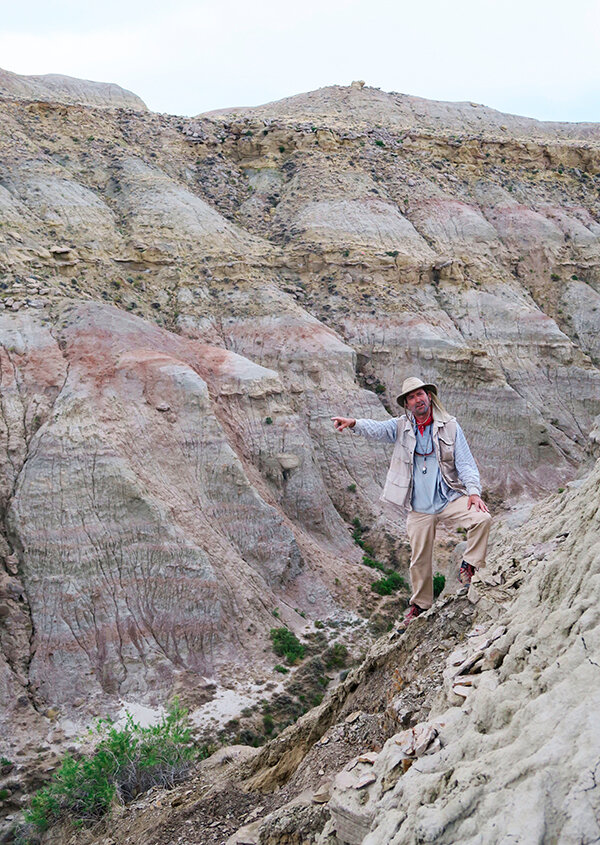Clear, 61° F
At the next Draper Natural History Museum Lunchtime Expedition, Dr. Scott Wing, the Curator of Paleobotany for the National Museum of Natural History, presents Global Warming in the Big Horn Basin 56 …
This item is available in full to subscribers.
The Powell Tribune has expanded its online content. To continue reading, you will need to either log in to your subscriber account, or purchase a subscription.
If you are a current print subscriber, you can set up a free web account by clicking here.
If you already have a web account, but need to reset it, you can do so by clicking here.
If you would like to purchase a subscription click here.
Please log in to continue |
|

At the next Draper Natural History Museum Lunchtime Expedition, Dr. Scott Wing, the Curator of Paleobotany for the National Museum of Natural History, presents Global Warming in the Big Horn Basin 56 Million Years Ago.
Wing says, “We live in a time marked by rapid increase in the amount of carbon dioxide in the atmosphere and the resulting global warming and other climatic changes.”
He said while predictions of the future are improving, we still know little about the changes to come, which will have long-lasting effects on plants, animals and ecosystems.
In his presentation, Wing discusses the “Paleocene-Eocene Thermal Maximum” (or PETM) episode that occurred right here in the Big Horn Basin 56 million years ago. During the episode, a rapid increase in carbon dioxide resulted in large climatic and ecological changes, making the Big Horn Basin the best place in the world to study the PETM. He then explores what close study of this long-ago episode of global change tells us about what might happen in the future.
Wing was born in New Orleans and grew up there and in North Carolina. His first summer of field work in the Big Horn Basin — 52 years ago this month — made him want to be a paleontologist, and he has returned to the area nearly every summer since.
Wing has been a research scientist and curator of Fossil Plants at the Smithsonian National Museum of Natural History since 1984. His research focuses on ancient climate and plants. He was part of the team that created the Smithsonian’s National Hall of Fossils, Deep Time, which opened in 2019. A fellow of the Geological Society of America and the Paleontological Society, Wing was awarded the Paleontological Society Medal in 2021.
The free, in-person talk takes place Thursday, July 11, at noon in the Buffalo Bill Center of the West’s Coe Auditorium.
Those who prefer to attend the talk virtually via Zoom webinar may do so by registering in advance at us02web.zoom.us/webinar/register/WN_-XoD4Gh9TMKiHDatR3b6Xw.
The Draper Museum’s Lunchtime Expedition lecture series is made possible through support from Sage Creek Ranch and the Nancy-Carroll Draper Charitable Foundation. Most talks in the series take place the first Thursday of the month. The Aug. 1 lecture by Dr. Riley Bernard discusses bats.